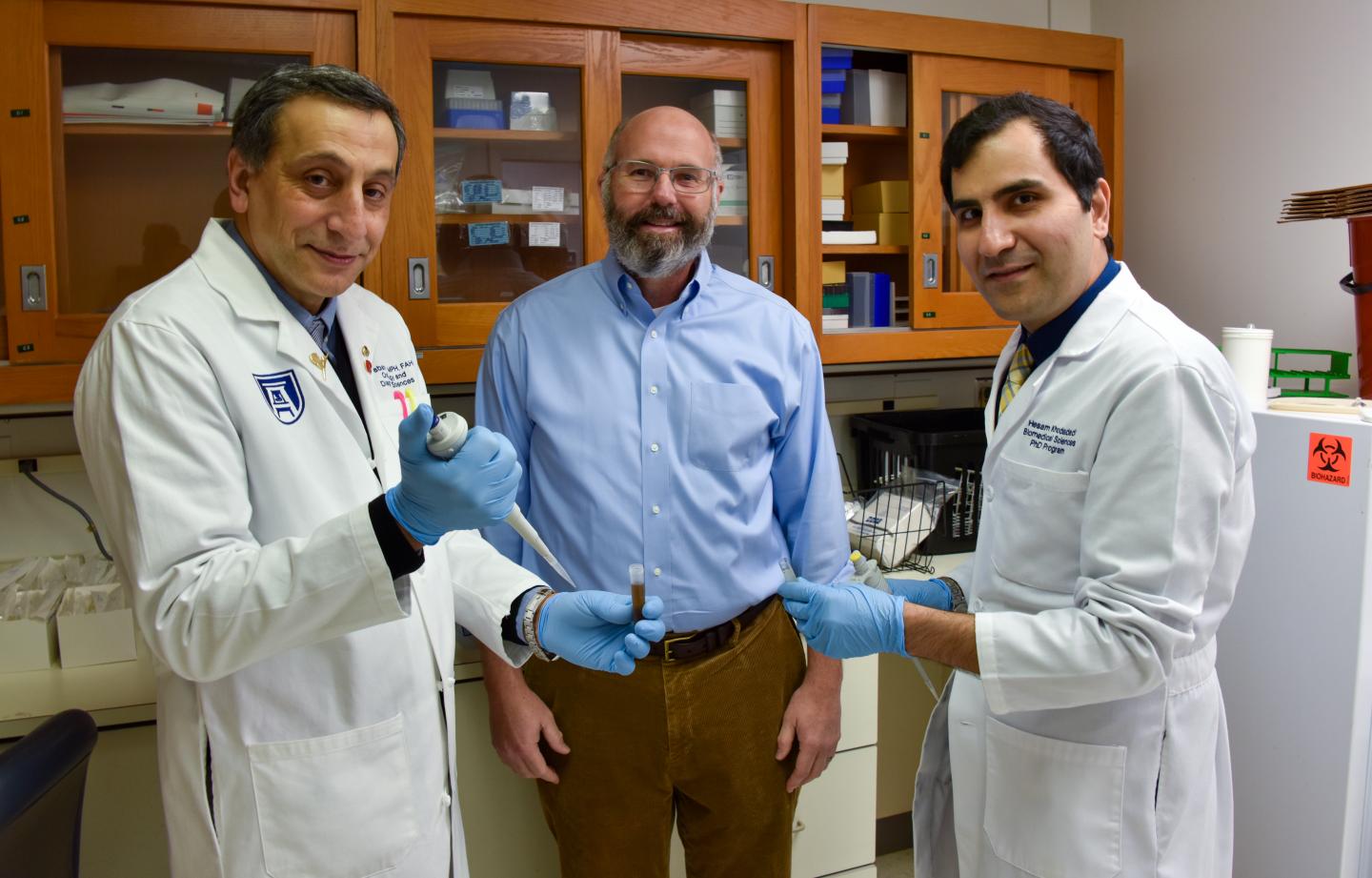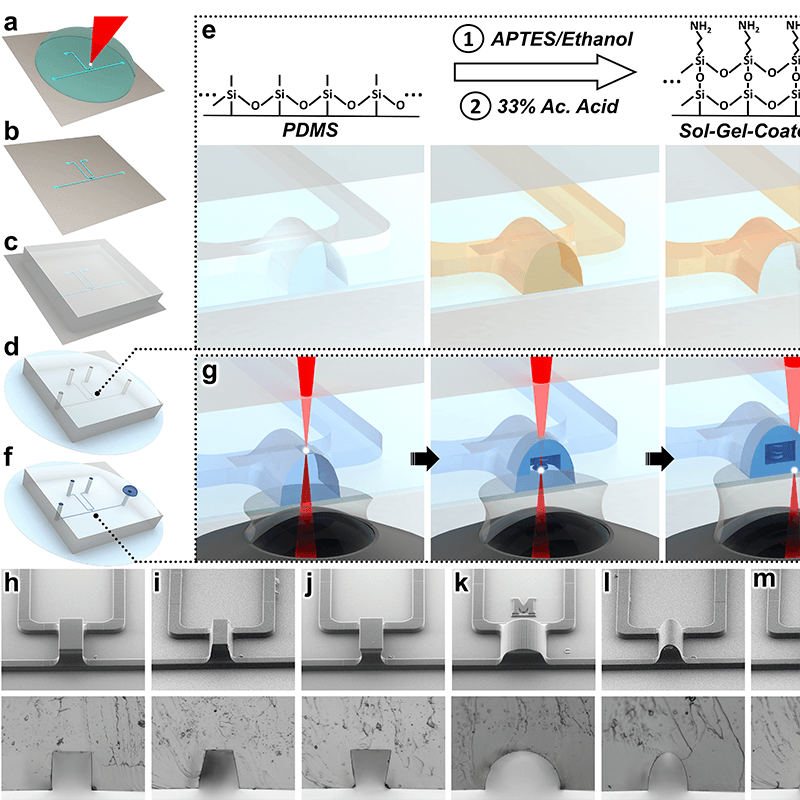
Research published today (Jan. 22) in the journal Brain reveals a new approach to Alzheimer’s disease (AD) that may eventually make it possible to reverse memory loss, a hallmark of the disease in its late stages.
The team, led by University at Buffalo scientists, found that by focusing on gene changes caused by influences other than DNA sequences — called epigenetics — it was possible to reverse memory decline in an animal model of AD.
“In this paper, we have not only identified the epigenetic factors that contribute to the memory loss, we also found ways to temporarily reverse them in an animal model of AD,” said senior author Zhen Yan, PhD, a SUNY Distinguished Professor in the Department of Physiology and Biophysics in the Jacobs School of Medicine and Biomedical Sciences at UB.
The research was conducted on mouse models carrying gene mutations for familial AD — where more than one member of a family has the disease — and on post-mortem brain tissues from AD patients.
AD is linked to epigenetic abnormality
AD results from both genetic and environmental risk factors, such as aging, which combine to result in epigenetic changes, leading to gene expression changes, but little is known about how that occurs.
The epigenetic changes in AD happen primarily in the later stages, when patients are unable to retain recently learned information and exhibit the most dramatic cognitive decline, Yan said. A key reason for the cognitive decline is the loss of glutamate receptors, which are critical to learning and short-term memory.
“We found that in Alzheimer’s disease, many subunits of glutamate receptors in the frontal cortex are downregulated, disrupting the excitatory signals, which impairs working memory,” Yan said.
The researchers found that the loss of glutamate receptors is the result of an epigenetic process known as repressive histone modification, which is elevated in AD. They saw this both in the animal models they studied and in post-mortem tissue of AD patients.
Yan explained that histone modifiers change the structure of chromatin, which controls how genetic material gains access to a cell’s transcriptional machinery.
“This AD-linked abnormal histone modification is what represses gene expression, diminishing glutamate receptors, which leads to loss of synaptic function and memory deficits,” Yan said.
Potential drug targets
Understanding that process has revealed potential drug targets, she said, since repressive histone modification is controlled or catalyzed by enzymes.
“Our study not only reveals the correlation between epigenetic changes and AD, we also found we can correct the cognitive dysfunction by targeting the epigenetic enzymes to restore glutamate receptors,” Yan said.
The AD animals were injected three times with compounds designed to inhibit the enzyme that controls repressive histone modification.
“When we gave the AD animals this enzyme inhibitor, we saw the rescue of cognitive function confirmed through evaluations of recognition memory, spatial memory and working memory. We were quite surprised to see such dramatic cognitive improvement,” Yan said.
“At the same time, we saw the recovery of glutamate receptor expression and function in the frontal cortex.”
The improvements lasted for one week; future studies will focus on developing compounds that penetrate the brain more effectively and are thus longer-lasting.
Epigenetic advantage
Brain disorders, such as AD, are often polygenetic diseases, Yan explained, where many genes are involved and each gene has a modest impact. An epigenetic approach is advantageous, she said, because epigenetic processes control not just one gene but many genes.
“An epigenetic approach can correct a network of genes, which will collectively restore cells to their normal state and restore the complex brain function,” she explained.
“We have provided evidence showing that abnormal epigenetic regulation of glutamate receptor expression and function did contribute to cognitive decline in Alzheimer’s disease,” Yan concluded. “If many of the dysregulated genes in AD are normalized by targeting specific epigenetic enzymes, it will be possible to restore cognitive function and behavior.”
Learn more: Alzheimer’s disease: It may be possible to restore memory function, preclinical study finds
The Latest on: Epigenetics
[google_news title=”” keyword=”epigenetics” num_posts=”10″ blurb_length=”0″ show_thumb=”left”]
via Google News
The Latest on: Epigenetics
- ORYZON to Provide Corporate Progress Updates at Several Events in Mayon May 9, 2024 at 1:00 am
MADRID, Spain and CAMBRIDGE, Mass., May 09, 2024 (GLOBE NEWSWIRE) -- Oryzon Genomics, S.A. (ISIN Code: ES0167733015, ORY), a clinical-stage biopharmaceutical company leveraging epigenetics to develop ...
- What you eat could alter your unborn children and grandchildren’s genes and health outcomeson May 8, 2024 at 2:29 am
WITHIN the last century, researchers’ understanding of genetics has undergone a profound transformation. Genes, regions of DNA that are largely responsible for our physical characteristics, were ...
- Watch what you eat! Your diet can have a influence on your descendant's genes!on May 3, 2024 at 10:27 am
Genes, regions of DNA that are largely responsible for our physical characteristics, were considered unchanging under the original model of genetics pioneered by biologist Gregor Mendel in 1865. That ...
- Revealing How Epigenetics Contribute to ALSon May 3, 2024 at 10:02 am
Amyotrophic lateral sclerosis (ALS) is a devastating and fatal neurodegenerative disease characterized by the loss of motor neurons | Cell And Molecular Biology ...
- Tune Therapeutics to test vaccine-like epigenetics platformon April 30, 2024 at 2:22 pm
Duke University spinout Tune Therapeutics is rehearsing the overture of its avant-garde therapeutic platform targeting chronic Hepatitis B Virus (HBV) that could also upend many more chronic disease ...
- Epigenetics News and Researchon March 24, 2024 at 5:00 pm
PharmaKure, a clinical stage pharmaceutical company developing precision medicines for Alzheimer’s Disease (AD) and other neurodegenerative diseases, today announces a new epigenetics ...
- Epigenetics in a Dishon February 27, 2024 at 6:25 am
Introduction to Epigenetics and Preliminary Editing Tools Narrator (Charlene Lancaster): Cells often turn gene expression on and off through epigenetic marks. This information is not encoded by the ...
- Epigenetics linked to the maximum life spans of mammals — including uson December 11, 2023 at 8:02 am
Now, scientists propose that "epigenetics" could at least partly explain these differences. They posted their yet-unreviewed findings in November to the preprint database bioRxiv. While "genetics ...
- Epigenetics Research Newson November 28, 2023 at 4:00 pm
Mar. 28, 2024 — A research consortium provides evidence that social behavior and social status are reflected at the molecular level of gene activation (epigenome) in juvenile and adult free ...
- Obesity, Epigenetics, and Gene Regulationon November 10, 2023 at 4:47 pm
The yellow agouti mouse has been a great animal model with which to study epigenetics and fetal programming. Recently, it has also been used to show that dietary factors can prevent the agouti ...
via Bing News










